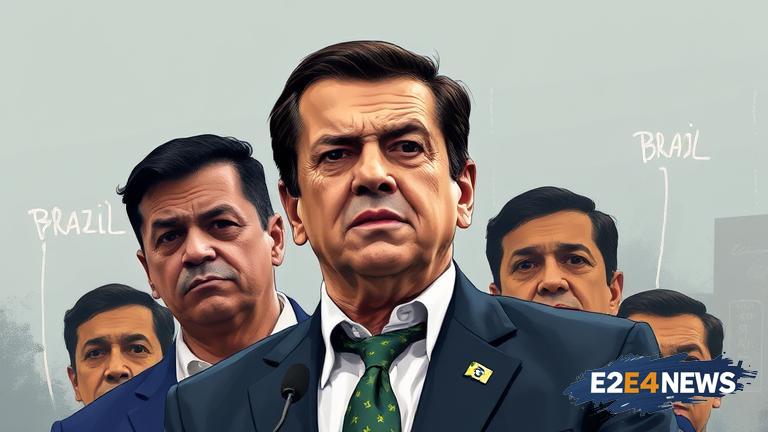Former Brazilian President Jair Bolsonaro has been placed under house arrest as he faces trial for his alleged involvement in a coup plot. The trial, which began recently, is centered around Bolsonaro’s actions following his loss in the 2022 presidential election. Prosecutors allege that Bolsonaro incited violence and encouraged his supporters to storm government buildings in an attempt to overturn the election results. The former president has denied any wrongdoing, claiming that he is a victim of political persecution. The coup plot trial is a significant development in Brazilian politics, with many seeing it as a test of the country’s democratic institutions. Bolsonaro’s supporters have been vocal in their defense of the former president, with many taking to the streets to protest his arrest. However, opponents of Bolsonaro have welcomed the trial, seeing it as an opportunity to hold the former president accountable for his actions. The trial is expected to be a lengthy and complex process, with many witnesses and pieces of evidence to be presented. The prosecution has presented evidence of Bolsonaro’s alleged involvement in the coup plot, including messages and videos in which he appears to encourage violence. Bolsonaro’s defense team has argued that the evidence is circumstantial and that the former president is innocent. The trial has sparked widespread debate in Brazil, with many citizens taking to social media to express their opinions. The international community has also been watching the trial closely, with many governments and organizations expressing concern about the implications for Brazilian democracy. The Brazilian government has assured the public that the trial will be fair and transparent, with all parties being given the opportunity to present their case. The outcome of the trial is uncertain, but it is clear that it will have significant implications for Brazilian politics and society. The trial has also raised questions about the role of social media in politics, with many arguing that platforms such as Twitter and Facebook played a significant role in the spread of misinformation and the incitement of violence. The Brazilian government has announced plans to regulate social media platforms, in an effort to prevent the spread of misinformation and to protect democratic institutions. The trial has also highlighted the importance of a free and independent press, with many journalists and media outlets playing a crucial role in uncovering evidence and holding those in power accountable. The international community has praised the Brazilian press for its role in the trial, with many seeing it as a model for other countries. The trial has also sparked debate about the role of the military in politics, with many arguing that the military should play a more limited role in civilian affairs. The Brazilian government has announced plans to reform the military, in an effort to ensure that it is more accountable to civilian authorities. The trial is a significant development in the history of Brazilian democracy, and its outcome will be closely watched by citizens and governments around the world. The former president’s house arrest has been extended until the trial is completed, and it is unclear when a verdict will be reached. The trial has also raised questions about the future of Brazilian politics, with many wondering what the implications will be for the country’s democratic institutions. The international community has expressed concern about the potential for violence and instability, and has called on all parties to respect the rule of law and the democratic process. The trial is a complex and multifaceted issue, with many different perspectives and opinions. However, it is clear that the outcome will have significant implications for Brazilian democracy and society, and that the trial will be closely watched by citizens and governments around the world.





